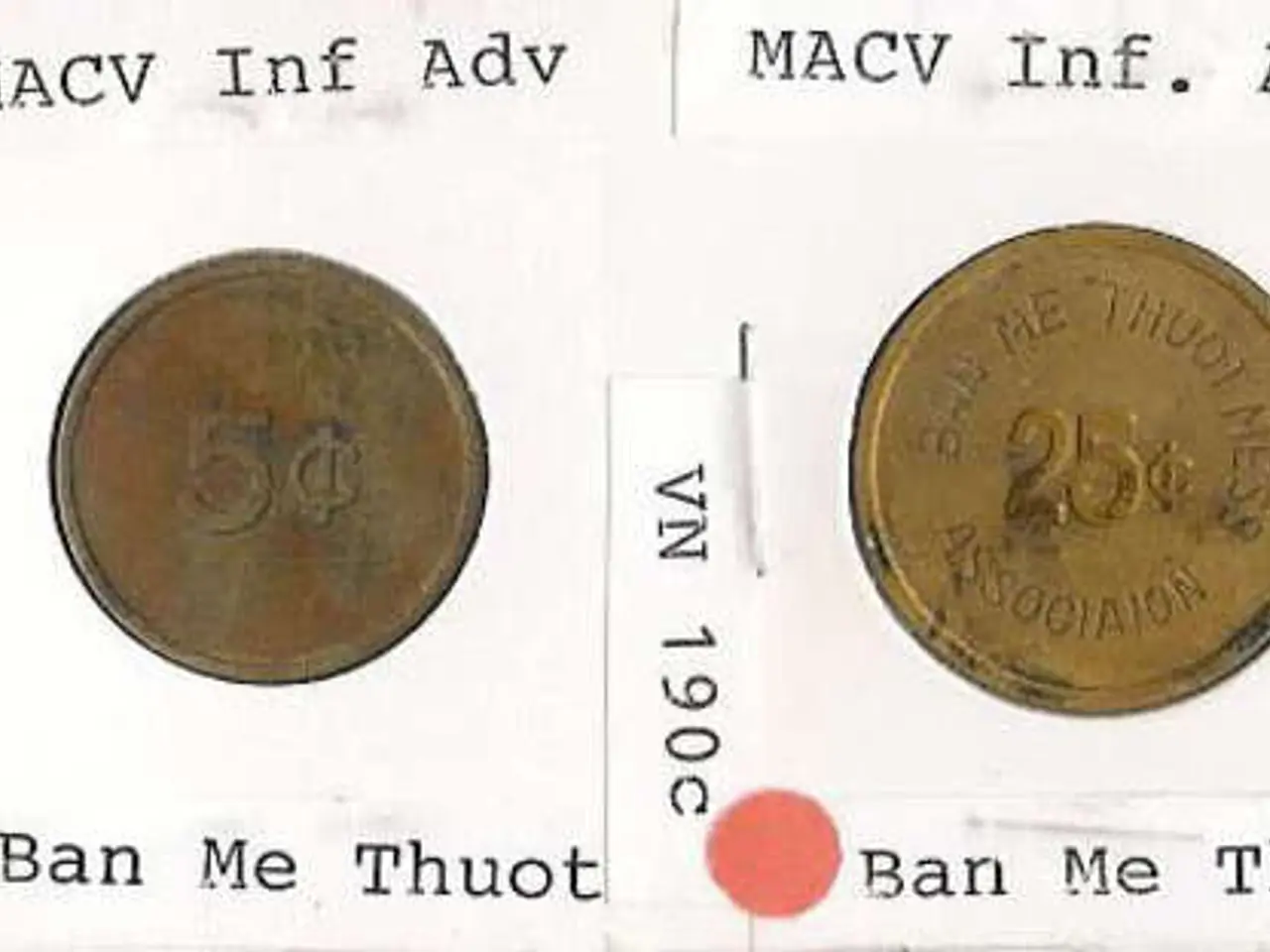Russia could face economic hardships if oil prices persistently dip, potentially impacting the country's budget, currency, and overall economy.
A New Era of Global Tariff Wars: What It Means for Russia
The global economy is quivering due to the US's aggressive tariff decisions, and even countries like Russia, with unchanged tariffs, aren't immune to its consequences.
In a dramatic turn of events, worldwide markets dived precipitously on April 7, following Donald Trump's unrelenting stance on tariffs. Even Russia's market wasn't left untouched.
Oil prices had a free fall as well: Brent plummeted below $63 per barrel, and Russian Urals plunged below $53 per barrel. However, considering the Russian government's budget projections for 2025, relying on oil prices averaging $60 per barrel, this sudden drop spells serious trouble for the nation's economy.
Acknowledging the gravity of the situation, the Central Bank of Russia admitted that the decrease in global oil prices poses significant risks to the country's economy.
But what does this all mean for the future of Russia?
Let's get a bird's-eye view of the potential implications, starting with expert economist Yevgeny Kogan's projections.
Kogan suggests that if oil prices continue their downward spiral, the Russian government may face some tough decisions, such as:
- Reducing social spending, government programs, and infrastructure projects.
- Borrowing from the market.
- Increasing taxes and excises.
To shed some more light on the subject, Olga Belen'kaya, the head of macroeconomic analysis at FG "Finam," concurs that if the National Welfare Fund (NWF) is quickly emptied, the government will have no choice but to seek additional budget revenue sources, be it through tax increases and/or budget expenditure cuts.
Igor Yushkov, an expert at the Financial University under the Russian government and the Fund for National Energy Security (FNES), adds that Russian authorities could, if necessary, reduce defense spending or certain items in this category.
However, volatility in the energy market will force all major powers to take some measure. Much depends on the actions of OPEC. In response to Trump's tariff announcement, the organization declared it would triple oil production in May, which, in turn, caused another collapse in oil prices. If OPEC had chosen otherwise, the market reaction would have been quite different.
Furthermore, oil prices will be affected by the results of Trump's negotiations with countries subjected to tariff sanctions. If he manages to strike a deal with them to reduce the trade deficit in exchange for the elimination of tariffs, oil prices might start recovering and potentially return to the range of $65-70 per barrel of Brent and the area of $60 per barrel of Urals.
If these actions don't take place, producers may have to reduce oil production due to falling energy prices, experts agree.
As we mentioned earlier, the Russian government could respond intelligently to these challenges by taking a strategic approach, with actions such as diversifying energy exports, economic diversification, establishing strategic partnerships, implementing monetary and fiscal policies, investing in infrastructural development, and engaging in diplomatic efforts.
Here, it's essential to understand their relevance. Diversification of energy exports would involve focusing on new markets like Southeast Asia while also investing more in alternative energy sources, such as nuclear energy. Similarly, economic diversification would mean reducing dependence on oil and gas and investing in other sectors like manufacturing and agriculture. Strategic partnerships could be forged with other energy-producing countries, and trade agreements negotiated with key importers to ensure stable export markets. Monetary and fiscal policies would address currency management, fiscal support for affected sectors, and infrastructure development. Finally, diplomatic engagement would focus on international negotiations to address tariff wars and secure agreements that would stabilize energy markets and reduce trade tensions.
In essence, these measures aim to mitigate the impact of declining energy prices on Russia's economy and ensure long-term energy security and economic stability.
I'm not sure which industry would be most significantly affected by the tariff wars and subsequent economic volatility, but the finance and energy sectors may face challenges as oil prices continue to drop, forcing the Russian government to make tough decisions such as reducing social spending, borrowing, or increasing taxes. Meanwhile, politics and general-news outlets will closely monitor the implications of these economic shifts for Russia's future. It is worth noting that the country's strategic response could involve diversifying energy exports, economic diversification, establishing strategic partnerships, implementing monetary and fiscal policies, and engaging in diplomatic efforts to mitigate the impact and secure long-term energy security and economic stability.








